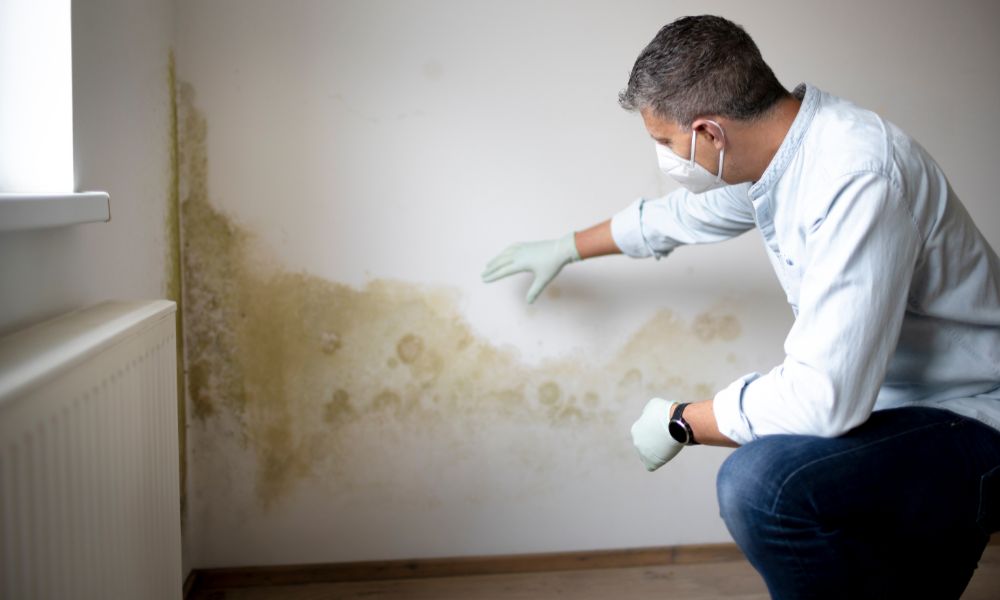Mold remediation is one of the fastest-growing industries in environmental services today, offering a rewarding career path for those looking to make a difference. Mold poses significant health risks, making expert remediation and preventive measures essential in homes, businesses, and institutions. Becoming a certified mold professional not only provides job security but also helps improve overall public health.
Whether you’re just starting or looking to expand your career, gaining proper mold certification training is a crucial step toward becoming a sought-after professional in this field. This guide explores everything you need to know about mold remediation, expert training programs, and how to build a successful career in this essential service.
Why Mold Remediation is in High Demand
Mold growth can occur anywhere moisture is present. Floods, plumbing leaks, poor ventilation, and other environmental factors make mold a common issue. Left untreated, mold can cause structural damage and lead to severe health problems, including respiratory issues, skin irritation, and allergic reactions. These risks have created a booming demand for professionals skilled in mold inspection and remediation.
Critical reasons for the high demand for mold remediation services:
- Increased awareness of mold-related health issues
- Strict regulations regarding mold in commercial and residential properties
- Growing need for preventative measures in flood-prone areas
- Ongoing property maintenance requirements in real estate
The increasing awareness surrounding mold-related hazards ensures that professionals with certified training in mold remediation will continue to find ample work opportunities.
How to Start a Career in Mold Remediation
-
Understanding the Role of a Mold Remediator
A mold remediator is responsible for safely removing mold and preventing it from returning. The process involves a thorough inspection, containment, cleaning, and restoration. Mold remediation experts work closely with property owners, health officials, and sometimes insurance companies to ensure properties are safe and healthy.
-
The Importance of Certification
Employers and clients prefer professionals with formal training and certification in mold remediation. Mold remediation certification demonstrates that you have the necessary skills and knowledge to handle mold removal in compliance with state and federal regulations. Certified mold inspectors are trusted to identify potential hazards and ensure the safety of building occupants.
-
Types of Mold Certification
Several certification levels are available, each suited to different stages of a mold remediation career. Below are the main types of certification you can pursue:
- Mold Inspector Certification: This certification qualifies individuals to conduct mold inspections, assess damage, and create reports for remediation.
- Mold Remediation Specialist Certification: Professionals with this certification specialize in mold removal, containment, and prevention strategies.
- Advanced Mold Certification: For those with several years of experience, this certification covers more complex mold remediation projects and specialized industry practices.
-
Training Programs for Mold Remediation
Mold remediation training programs are available online and in person, with options to accommodate different learning preferences and schedules. The most effective courses offer hands-on experience, ensuring students are fully prepared for real-world situations.
Key features of a high-quality mold remediation training program include:
- Comprehensive Curriculum: Covering mold biology, health impacts, remediation techniques, and regulatory guidelines.
- Hands-on Training: Practical learning through real-life case studies and lab work.
- Certification Preparation: Coursework designed to help students pass certification exams.
- Ongoing Support: Access to industry experts and continuous education to stay up to date with the latest techniques.
-
Choosing the Right Certification Program
When selecting a mold certification training program, it’s crucial to choose one accredited by recognized industry organizations such as the Institute of Inspection, Cleaning and Restoration Certification (IICRC) or the National Organization of Remediators and Mold Inspectors (NORMI). Employers widely accept these certifications, and government agencies and insurance companies often require them.
Step-by-Step Mold Remediation Process
While training will give you a full breakdown of the mold remediation process, having a solid grasp of the critical steps is essential before launching your career. Below is a simplified overview of what the job entails:
-
Inspection and Assessment
Mold professionals begin with an in-depth assessment, identifying the type and extent of mold contamination. They then use moisture detection tools to locate hidden mold in walls, ceilings, or flooring.
-
Containment
Containment measures are critical to prevent mold spores from spreading during the cleanup. Sealing off affected areas with plastic sheets, setting up negative air pressure, and using air filtration systems are standard techniques.
-
Mold Removal
Depending on the surface, professionals either use chemicals, scrubbing, or removal of contaminated materials to eliminate the mold. Special attention is paid to porous surfaces like drywall, carpeting, or insulation, which may require complete removal if they’re heavily infested.
-
Cleaning and Sanitizing
After the mold is removed, all contaminated surfaces must be thoroughly cleaned with antifungal and antimicrobial solutions to prevent regrowth. Air scrubbers and dehumidifiers are employed to reduce moisture in the environment.

-
Restoration
The final step involves repairing or replacing any materials that were removed or damaged during remediation. This could involve minor repairs such as replacing drywall or major restoration projects like structural rebuilds in severe cases.
Career Opportunities in Mold Remediation
The mold remediation industry offers a diverse range of career opportunities beyond remediation. Here are some paths you can explore once you are certified:
-
Mold Inspector
Certified mold inspectors play a vital role in identifying and assessing mold issues in residential, commercial, and industrial settings. They provide detailed reports, helping property owners take the necessary steps to prevent mold growth.
-
Mold Remediation Specialist
Remediation specialists focus on the physical removal and treatment of mold. They work with specialized equipment to ensure proper containment and cleaning of affected areas.
-
Environmental Consultant
Environmental consultants are experts in identifying environmental hazards, including mold, and advising businesses and homeowners on prevention strategies. They often work with builders, architects, and real estate developers to ensure buildings are designed to minimize moisture problems.
-
Project Manager
With experience, many mold remediation professional’s advance to become project managers. These individuals oversee large-scale mold removal operations, manage teams, and ensure compliance with safety standards and regulations.
-
Health and Safety Officer
In larger organizations, health and safety officers ensure that mold issues are handled according to workplace safety protocols. They often work in hospitals, schools, or corporate environments, where indoor air quality is a critical concern.
How to Stay Ahead in the Mold Remediation Industry
The mold remediation industry is constantly evolving with new regulations, techniques, and technologies. Staying ahead requires ongoing education and a commitment to following industry best practices. Professionals who continuously expand their knowledge and stay informed on the latest developments will thrive in this competitive market.
Some tips for success include:
- Attend Industry Conferences: Networking with peers and learning from experts keeps your skills sharp and up-to-date.
- Stay Informed on Regulations: Mold remediation is heavily regulated. Knowing and adhering to all local, state, and federal laws will give you a professional edge.
- Invest in Technology: Modern tools and equipment, such as infrared cameras for moisture detection and advanced air filtration systems, will improve your effectiveness on the job.
- Obtain Additional Certifications: Beyond the basic mold certification training, additional courses in water damage restoration, asbestos removal, or hazardous materials handling will broaden your skill set and enhance your marketability.
Conclusion
Becoming a certified mold inspector or remediation specialist is a rewarding and lucrative career choice. With the proper training, experience, and certifications, professionals can tap into a booming market while helping to ensure safer and healthier environments. Investing in Certified Mold Inspector Training and Mold Remediation courses will set you on the path to success in this dynamic and essential industry.
By staying current with best practices and maintaining a commitment to safety and quality, mold remediation professionals will continue to play a crucial role in safeguarding public health and property integrity.


